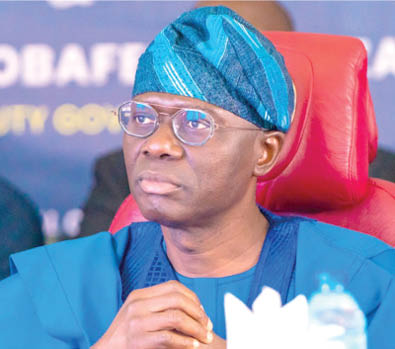Lagos signs deal with Dutch firm, to generate power from waste
Lagos State has signed a deal with a Dutch firm as a step towards turning tonnes of solid waste generated in the metropolis to usable energy. Governor Babajide Sanwo-Olu formalised a partnership with a Dutch firm, Harvest Waste Consortium, for the construction of a high efficiency Waste-to-Energy plant on Epe landfill, which will utilise advanced […]

Gov Babajide Sanwo-Olu
Lagos State has signed a deal with a Dutch firm as a step towards turning tonnes of solid waste generated in the metropolis to usable energy.
Governor Babajide Sanwo-Olu formalised a partnership with a Dutch firm, Harvest Waste Consortium, for the construction of a high efficiency Waste-to-Energy plant on Epe landfill, which will utilise advanced technology to generate clean energy from municipal solid waste, commercial and industrial waste.
According to him, the innovative waste management solution is expected to take some 40,000 homes off the national electricity grid, as the technology would enhance energy security and diversification, generating between 60 and 75 megawatts of baseload electricity annually.
The governor said the partnership with the Amsterdam, Netherlands-based firm was at the instance of the Ministry of the Environment and Water Resources, while the agreement was signed under the supervision of the Lagos State Office of the Public Private Partnership (PPP).
First anniversary: Nigerians demand better deal from Tinubu
Police affairs minister affirms commitment to reforms
Sanwo-Olu said the inadequacies of the current waste disposal practices in the state led to the sealing of the partnership to bring about innovative alternatives towards reducing environmental pollution, improving air quality, and stemming degradation and contamination of water resources that posed threats to the life quality in the state.
Beyond the environmental benefits, the governor said the project, which has over 25 years operational lifespan, would stimulate economic activities around the initiative, while attracting major investments to the state and creating jobs.
He said: “We are thrilled to announce the construction and operation of a High Efficiency Waste-to-Energy plant in Lagos. This state-of-the-art facility will be built with the capacity to process 2,250 tonnes of waste daily, representing a monumental step forward in our waste management strategy. The plant will not only provide a sustainable alternative to the current practice of waste dumping, it will also divert more than 95 per cent of our waste from landfill sites.”
Sanwo-Olu said the initiative would significantly reduce the environmental footprint of Lagos waste disposal methods, with the plant expected to trap about 550,000 metric tons of Carbon dioxide and other greenhouse gases emitted daily from the dumpsite.
Deputy Consul General of the Netherlands Consulate, Ms. Leonie Van der Stijl, said the partnership presented the possibility of international collaboration to solve local challenges, noting that Lagos, through the pact, became the first partner of the Dutch waste management.
The envoy gave assurance of the Dutch government’s commitment to the success of the agreement.
